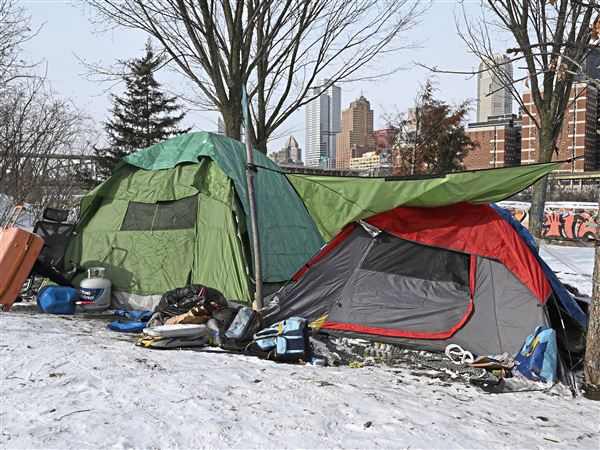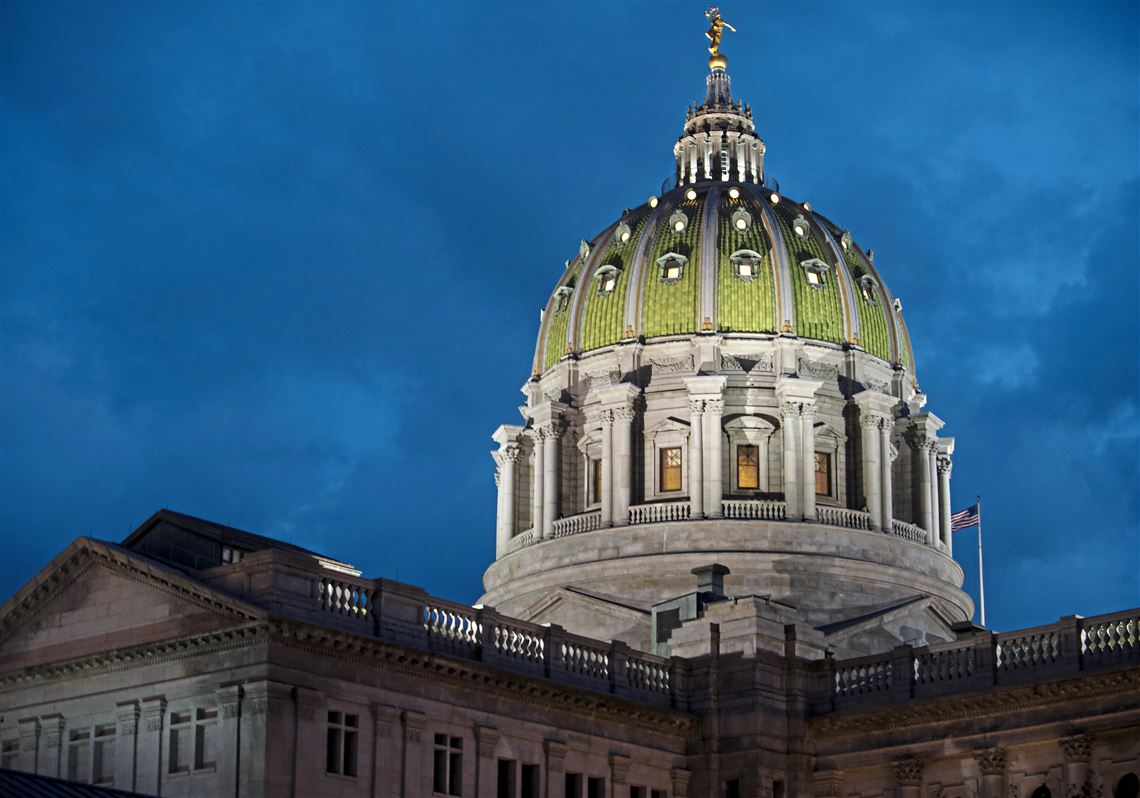Party leaders in the state Legislature will be asked to figure out how many rank-and-file lawmakers support various plans to cut or get rid of school property taxes as a months-long study of the topic concludes.
State Sen. David Argall, a Schuylkill County Republican and head of an informal group of lawmakers that did the study, said its work is largely done.
The final product is a short list of options on how to shift the burden of financing a big piece of school districts’ operating costs from property taxes to other taxes, according to Mr. Argall. He said it will go to House and Senate party leaders so they can “take a head count” on preferences of their lawmakers.
He declined to give details.
Lawmakers close to the process indicated the stakes are high in figuring out how to address the thorny issue.
With state senators scheduled to be in Harrisburg only one day in December, it will be nearly impossible for any plan to make significant progress in the Legislature this year. Mr. Argall previously said he favored House or Senate discussions to occur before next year, when the presidential campaign is likely to exacerbate political tensions.
“It will have to be January,” said state Sen. Judy Schwank, a Berks County Democrat and member of the work group. “We have some good, workable proposals. Obviously, they will need some tweaking. Some progress has been made.”
The tax raises about $15 billion for the state’s school districts, which typically issue bills soon after July 1.
Recent information put out by the state’s Independent Fiscal Office showed that the average property tax bill for homes inhabited by their owners was $2,380. But the bills vary tremendously, depending on millage rates and property assessments.
Many seniors have a hard time paying the tax. Lawmakers have recited stories of elderly constituents losing their homes because of property taxes.
At the same time, any tinkering with school funding must be sensitive to an already large imbalance between educational offerings in districts with robust tax bases and those with many impoverished families.
A recent Morning Call report gave a stark illustration of how tax bases — tapped by districts via the school property tax — fuel educational success. A multi-district lawsuit has alleged the state’s school funding system creates huge funding disparities and essentially discriminates against the poor.
In some legislative districts, though, complaints about school property taxes are a top issue.
Late in the evening of Nov. 19, just after a grueling debate on child sex abuse bills, Republican Sen. Mario Scavello of Monroe County spoke on the floor of the state Senate to decry pain caused by property taxes.
Mr. Scavello said one 88-year-old resident paid less than $500 in property tax in 1984 and now pays $5,000 on the same property. He said he plans to speak regularly on the Senate floor because “I am tired of staying quiet” about the issue.
Sen. Lisa Boscola, a Northampton County Democrat who is part of the work group and has pushed for property tax reform for 20 years, called its bipartisan, bicameral make-up unprecedented.
While the group has issued no public statements, lawmakers within the party caucuses have had their own discussions or planning sessions.
A spokesman for House Democrats, Bill Patton, said taking steps to reduce property taxes has been mentioned by many members as a priority for 2020. And, he said, bolstering the state’s existing Property Tax and Rent Rebate program was an approach that appeared to have appeal.
“We know that rising taxes can hold people back from reaching their goals. Doing something about it is a bipartisan goal,” Mr. Patton wrote in an email.
The entire state House and half the Senate face voters next year.
Ms. Schwank said an earlier informal agreement by Senate Democrats that senior citizens should be first to benefit from any property tax reduction plan has, in the work group, become secondary to the desire to “get the most relief to as many people as we can.”
Ms. Schwank said she agreed with that change in sentiment.
Republican Rep. Eric Nelson of Westmoreland County, a work group member who said property tax reform is a top issue in his district, said elimination of the tax was his original goal.
Now, he believes a widespread relief program makes more sense. He said of elimination, “The reality is that we just don’t have the votes to get it done.”
House Republicans, he said, have discussed a combination of an increase in both the state’s personal income tax and sales taxes to offset property tax relief, with that relief being delivered via lower millage rates and increased homestead exemptions for property taxes.
District-by-district cost estimates of possible financial effects already have been produced, and Mr. Nelson said House Republicans are ”85% of the way” to a formal, written plan.
Mr. Argall said last month that the most likely outcome of all the discussions would be a plan to increase both the income and sales taxes. One challenge in that approach is that because Pennsylvania is among a small minority of states with a flat personal income tax, it is viewed by some as unfairly burdening lower-income people.
First Published: December 2, 2019, 10:30 a.m.













